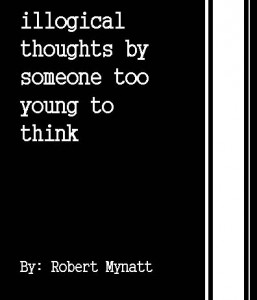Viktor Frankl is, among other things, both a psychiatrist and a Holocaust survivor. While reading his book Man’s Search For Meaning, those are the two most important biographic pieces throughout the book. What he does that’s perhaps different and unique compared to many other theorists and psychiatrists is the approach he takes in treating a patient, a theory that he details in his book called logotherapy. Logos deriving from the Greek ‘meaning’, while therapy—well, that’s a bit self-explanatory. The essential translation: meaningful therapy. And that’s what Frankl sought to accomplish after he survived the grueling conditions of Auschwitz and Dachau and other such camps—to produce something meaningful. I believe that he’s accomplished that in Man’s Search For Meaning.
While the book, a relatively small one at that, can be read as a psychology book it certainly reaches out to a wider audience by not using the stereotypical, (pseudo)scientific dialect that many other psychologists and psychiatrists like to use. Rather, Frankl weaves the reader through his theory of logotherapy by recounting his experience during the Holocaust, introducing us to characters that are immediately identifiable and tragic because of their inevitable fate.
The reason why Frankl’s logotherapy is and was instantaneously successful and innovative was because it essential rejected, at the time, the two major preconceptions about the human condition made by psychologists, in which there was either Alfred Adler’s will to power or Freud’s will to pleasure. Much of where Adler drew inspiration from was Nietzsche, and of course Freud always enjoyed a nice night cap of cocaine right before he fell asleep. Either power or pleasure, those were the main concerns of psychologists for much of the early twentieth century. It was Frankl that changed all that with his idea of the will to meaning. The will to meaning essentially allowed for a broader interpretation, since meaning, at its very core, can be defined on an individual basis, and thus does not necessarily exclude either the will to power or will to pleasure concepts but merely gives them depth. Frankl found depth.
At the heart of Frankl’s message is this inherent message about how we as individuals can find meaning in the very worse and best of our lives, that no matter what the individual has the strength to survive. Rather than sinking into a major depression after he came out of Auschwitz and finding his entire family and friends slaughtered at the hands of Nazis, as would be understood, Frankl shows the very strength capable in all of us through his magnanimous actions after the Second World War. While easily digestible and comprehensible, Man’s Search For Meaning is at once a classic and should inspire every person that reads it to realize that, while not always ideal, life can have meaning in many different ways, and that as long as the individual embraces that meaning they can fulfill it. It is at moments where we reject meaning, Frankl theorizes, that we arrive at moments like the Holocaust in which not only is the individual demeaned but society at large is reduced to a mere shadow of its once glory and capabilities.
Man's Search For Meaning by Viktor Frankl,





Rain
2 Mar 2012I LOVE this book….he is amazing. I love the Will to meaning part….so pivotal…and especially about the existential vacuum.
Emma
2 Mar 2012I loved this book!
Tina
2 Mar 2012I had to read that book in high school for a religion class. Very enlightening.
Juls
2 Mar 2012I’m going to look for it at the library, it sounds amazing.
RevSean Patrick
2 Mar 2012Ah, thank you! A truly inspiring read to revisit! Thanks for this post!